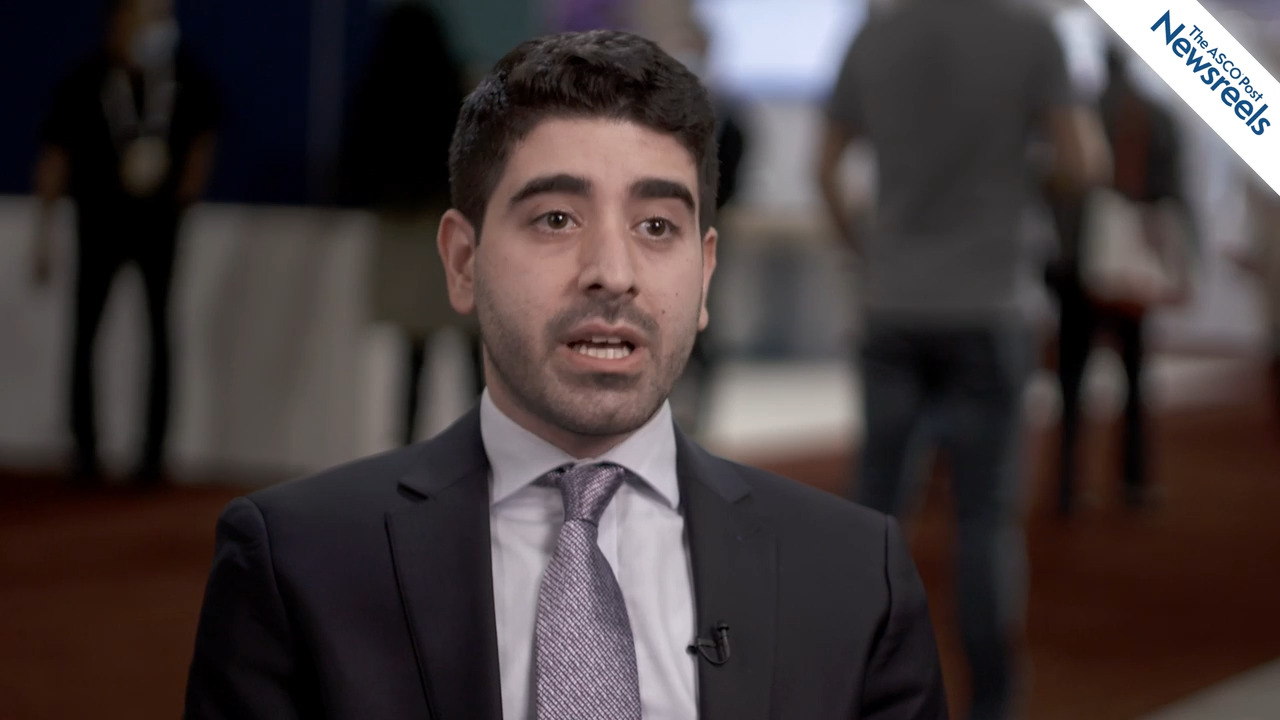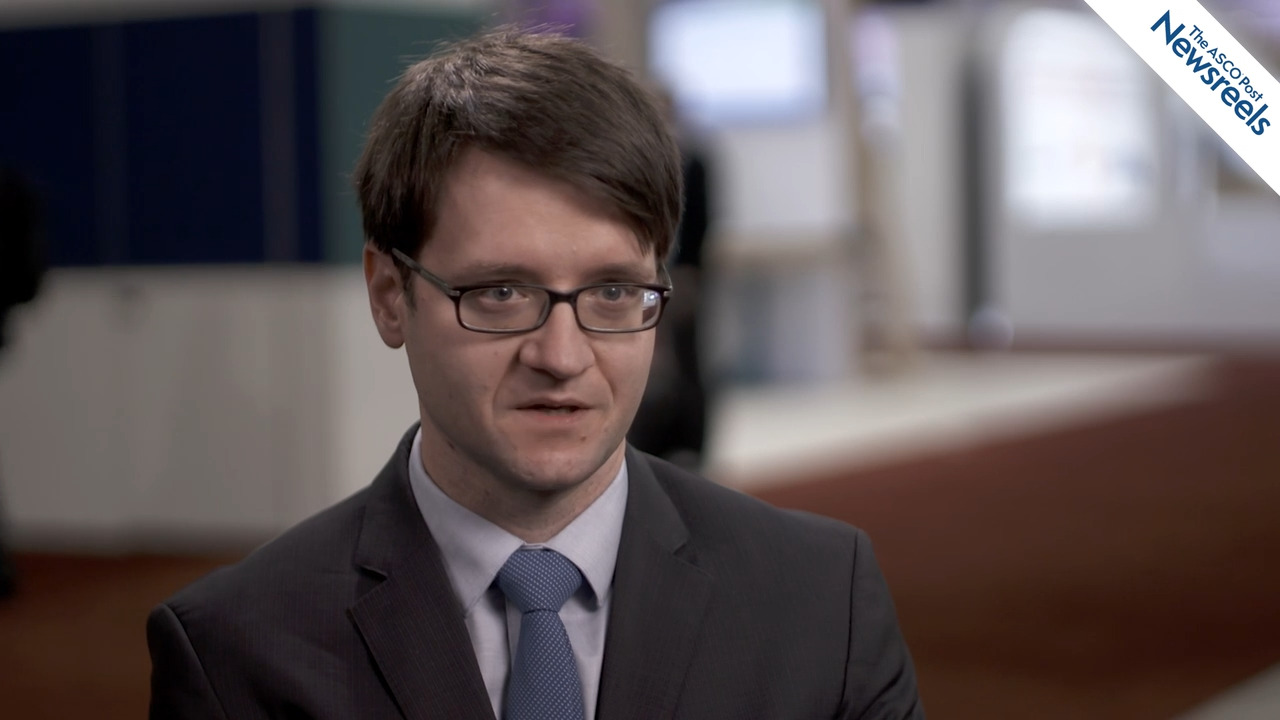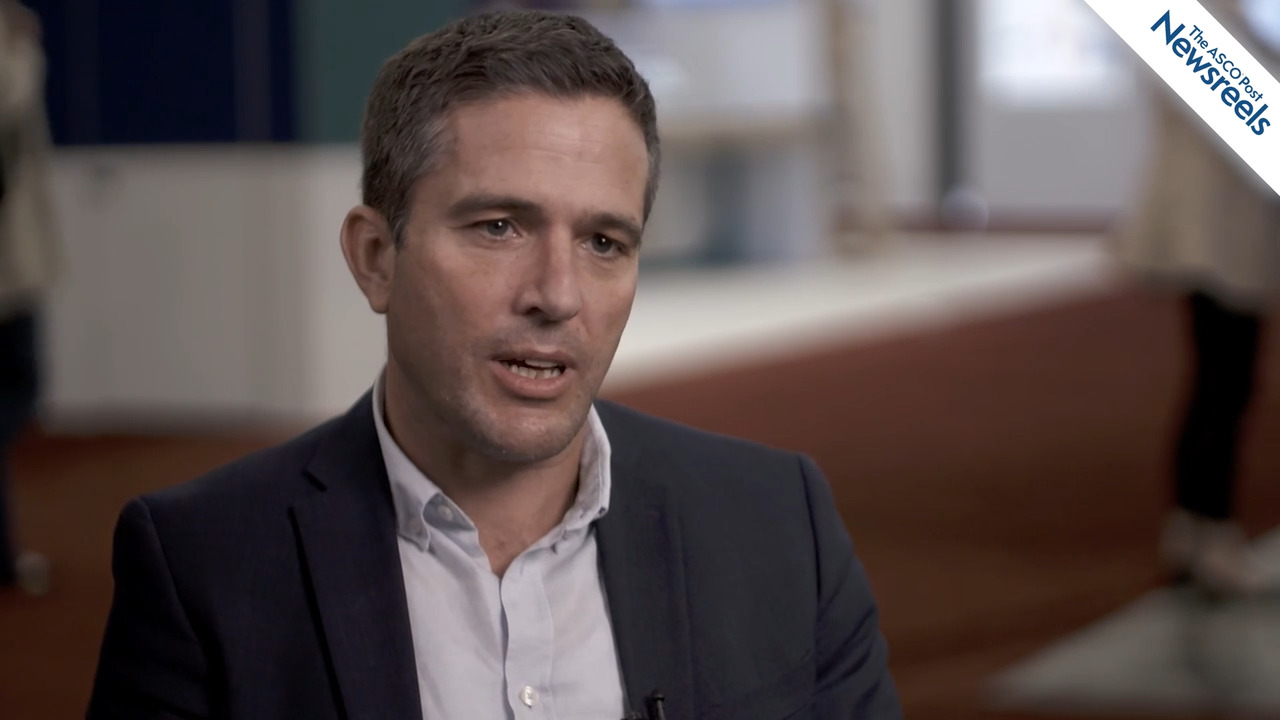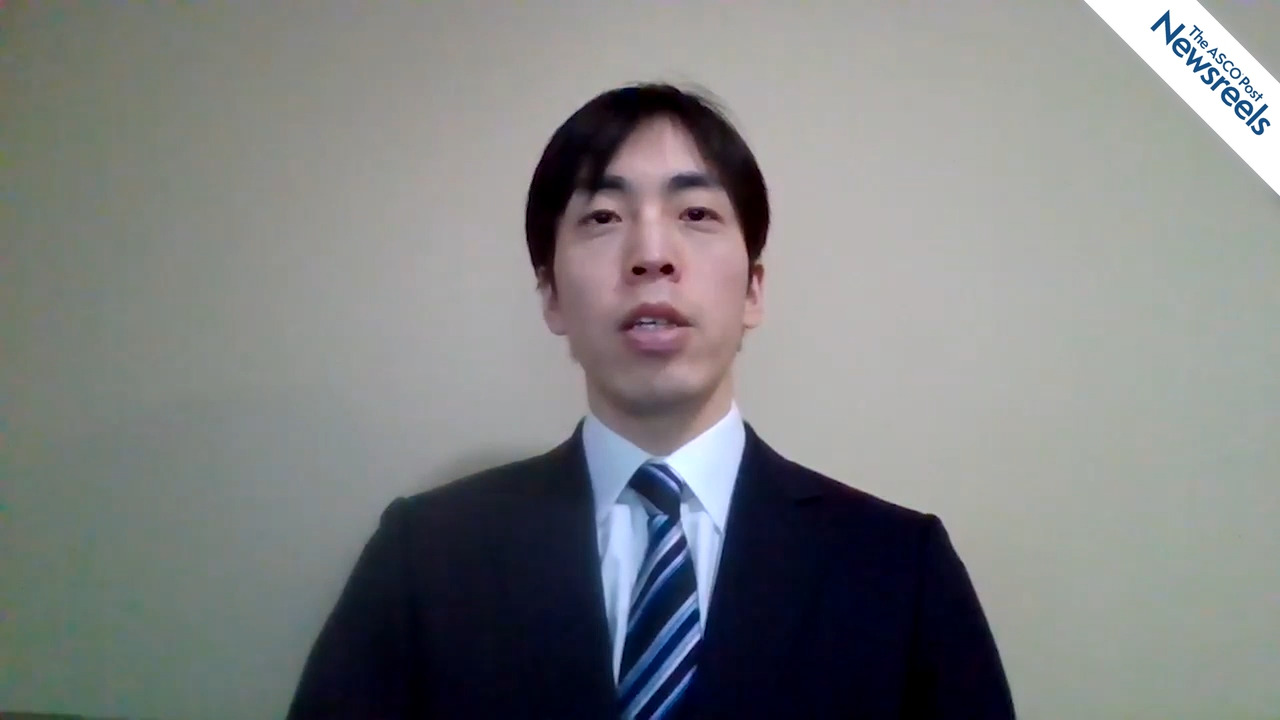L. Elizabeth Budde, MD, PhD, on Relapsed/Refractory Follicular Lymphoma: Early Results on Mosunetuzumab Monotherapy
2021 ASH Annual Meeting & Exposition
L. Elizabeth Budde, MD, PhD, of City of Hope, discusses phase I/II findings that showed mosunetuzumab monotherapy induces deep and durable remissions in patients with relapsed or refractory follicular lymphoma who have received two or more prior lines of treatment, including those with double-refractory disease. Because follicular lymphoma is associated with frequent relapses and decreasing progression-free intervals with successive lines of conventional therapy, these data are encouraging (Abstract 127).
The ASCO Post Staff
Tarek H. Mouhieddine, MD, of The Mount Sinai Hospital and The Icahn School of Medicine at Mount Sinai, discusses data that suggest patients with heavily pretreated, predominantly triple-class refractory multiple myeloma who relapse after treatment with bispecific antibodies may still have good outcomes when sequentially treating with other immunologic treatments (Abstract 821).
The ASCO Post Staff
Daniel A. Ermann, MD, of the Huntsman Cancer Institute, University of Utah, discusses results from the largest retrospective study on outcomes utilizing radiotherapy in early-stage diffuse large B-cell lymphoma. Adding radiation to front-line multiagent chemotherapy was associated with a survival benefit for all patients with early-stage disease. An overall survival benefit was seen with the addition of radiation to front-line multiagent chemotherapy for patients with nodal involvement and those with specific extranodal involvement in the testes, thyroid, skin and soft tissue, and head and neck (Abstract 49).
The ASCO Post Staff
Andrew Matthews, MD, of the Abramson Cancer Center, University of Pennsylvania, discusses findings from a retrospective study at an academic institution, which showed there was no statistically significant difference in overall survival between induction with CPX-351 and venetoclax/azacitidine for adults with acute myeloid leukemia. Prospective studies to confirm similar effectiveness with careful attention to side effects, quality of life, and impact on transplant outcomes may help clinicians decide between these therapies (Abstract 795).
The ASCO Post Staff
Carsten Utoft Niemann, MD, PhD, of Copenhagen University Hospital, discusses a primary analysis of the phase II Vision HO141 trial, which showed the feasibility of stopping and restarting ibrutinib and venetoclax in patients with relapsed or refractory chronic lymphocytic leukemia who have undetectable measurable residual disease. A favorable benefit-risk profile was demonstrated, with no new safety signals (Abstract 69).
The ASCO Post Staff
Masayuki Umeda, MD, of St. Jude Children's Research Hospital, discusses his research which showed that UBTF-TD (upstream binding transcription factor-tandem duplications) define a unique subtype of acute myeloid leukemia that previously lacked a clear oncogenic driver. UBTF-TD is associated with FLT3-ITD and WT1 mutations, adolescent age, and poor outcomes. These alterations are critical for future risk-stratification for this patient cohort.





